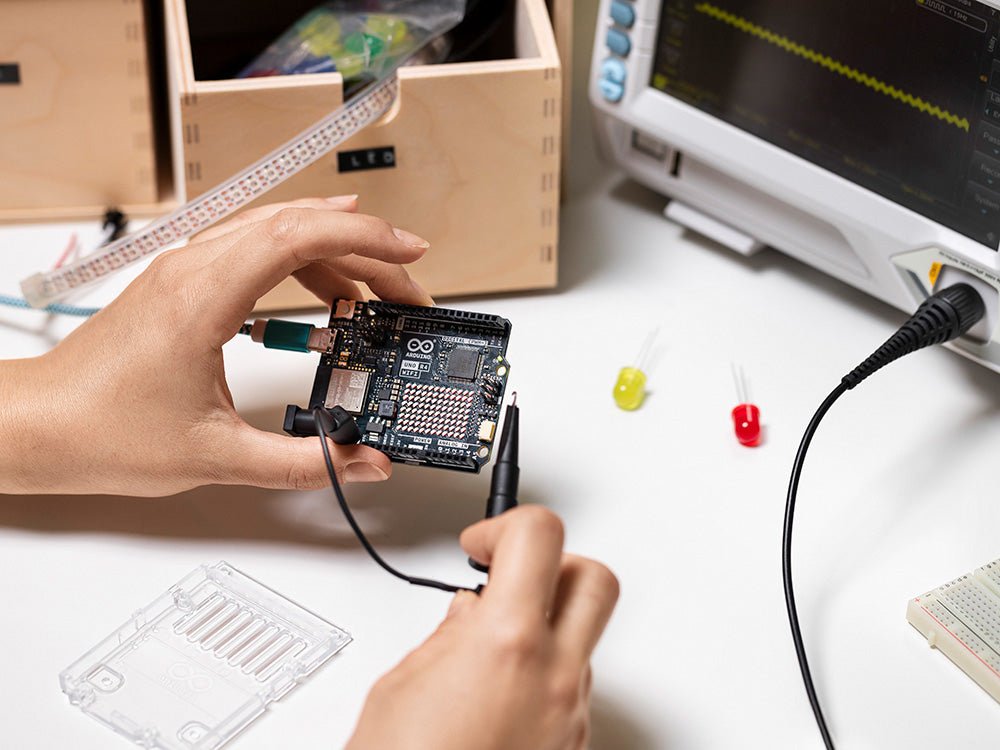Arduino, the company known for its open-source microcontroller boards, is exploring the idea of manufacturing their products in India. This strategic move aims to combat the proliferation of counterfeit boards in the market and to cater to the increasing demand from India’s youthful population.
CEO Fabio Violante revealed in a virtual interview with TechCrunch that the Italian firm is currently in talks with electronic manufacturing service (EMS) companies in India to establish local production during the first quarter of 2022. This marks a significant deviation from their usual practice of producing all their boards in Italy.
India is Arduino’s largest market for IDE downloads, with a whopping 3.2 million downloads. The country is also home to local branches of global distribution companies such as DigiKey, Mouser Electronics, and Avnet. Despite this, India only makes up less than 1% of their customer base, and Violante attributes this to the prevalence of counterfeit boards.
“The strange situation for us in India is that even though the community and user base for Arduino IDE are large, we barely sell any original products in the Indian market. This is mainly due to the high costs of imported electronic products, making it difficult for people to afford our original boards. As a result, they turn to alternative products, clones, and even cheap knockoffs from China.”
Currently, clone boards are available in India for almost half the price of original boards, which already include import duties. By initiating local manufacturing, Arduino aims to offer their boards at reduced prices, similar to those of their Chinese counterparts.
However, the problem of counterfeit boards is not limited to India, and Violante admits that for every one original board sold, there are five to six clones in the market. As an open-source company, this poses a unique challenge as their revenue comes primarily from selling original hardware.
To address this issue on a global scale, Arduino is constantly innovating and making their hardware more sophisticated, making it difficult to replicate.
“This continuous innovation gives us a competitive edge and makes it harder for counterfeiters to copy and paste our boards. Our new boards utilize more sophisticated microcontrollers and a more complex power section, making it nearly impossible to replicate.”
During a recent visit to New Delhi, Violante attended an investor-focused event hosted by the state-owned agency Invest India and had meetings with government officials and lawmakers, including India’s Minister of State for Electronics and Information Technology, Rajeev Chandrasekhar.
In an effort to compete with China, India has been offering incentives and subsidies for global manufacturers to establish production hubs in the country. This has resulted in a 111% increase in domestic electronics manufacturing, reaching $99 billion in the financial year 2022-23, from $47 billion in 2017-18, according to government data. However, most of this growth can be attributed to the rise in local mobile phone manufacturing. India now has the second-largest market for mobile phones, with over 99% of all domestic sales consisting of locally manufactured units. The government aims to expand this to include other electronic components, such as displays and semiconductors.
Arduino is currently considering both large international EMS companies and smaller local players in India, specializing in electronic or development boards, according to Violante.
The CEO also revealed that they may initially start with manufacturing their latest model, the $27 Uno R4 WiFi in India, which was released earlier this year. This affordable board is equipped with a 32-bit Cortex M4 processor, 32 KB RAM, and 256 KB flash storage, making it appealing to a larger audience. However, they also plan to eventually produce their more advanced Pro-series models, which were launched in 2020.
Aside from production, Arduino is also looking to connect with Indian educational institutions to raise brand awareness among students and potentially be a part of their coursework. This partnership will also allow the company to collaborate with companies working with these institutions. They have an existing partnership with Tata Consultancy Services (TCS) in the U.S. and plan to expand this collaboration in India.
Additionally, Arduino’s foray into India, initially geared towards meeting local demand, may lead to exporting locally manufactured boards to other countries in the future. Unlike many other companies, they do not rely on China for production, giving them an advantage in an increasingly competitive market.








